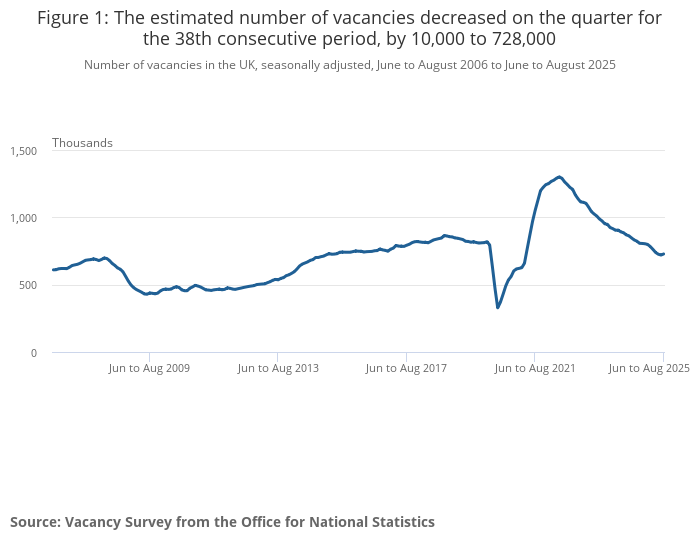UK Job Vacancies Fall for 38th Consecutive Month
The UK labour market has hit a new record: job vacancies have now fallen for the 38th consecutive quarter, down by 10,000 to 728,000 between June and August 2025 (ONS). That means there are now 67,000 fewer vacancies than before the pandemic.
Healthcare and retail saw some of the steepest drops, with construction vacancies down nearly 25% year-on-year. For businesses, this means that recruitment is becoming increasingly competitive across various industries. For candidates, it’s worth exploring where opportunities still exist. Check out our guide on the most in-demand jobs for 2025.

What this means: Job seekers should target sectors that are still actively hiring, such as technology and healthcare, while employers must refine their job offers to stand out in a smaller pool of vacancies.
With supply outpacing demand, businesses that make swift hiring decisions are more likely to secure the best talent.